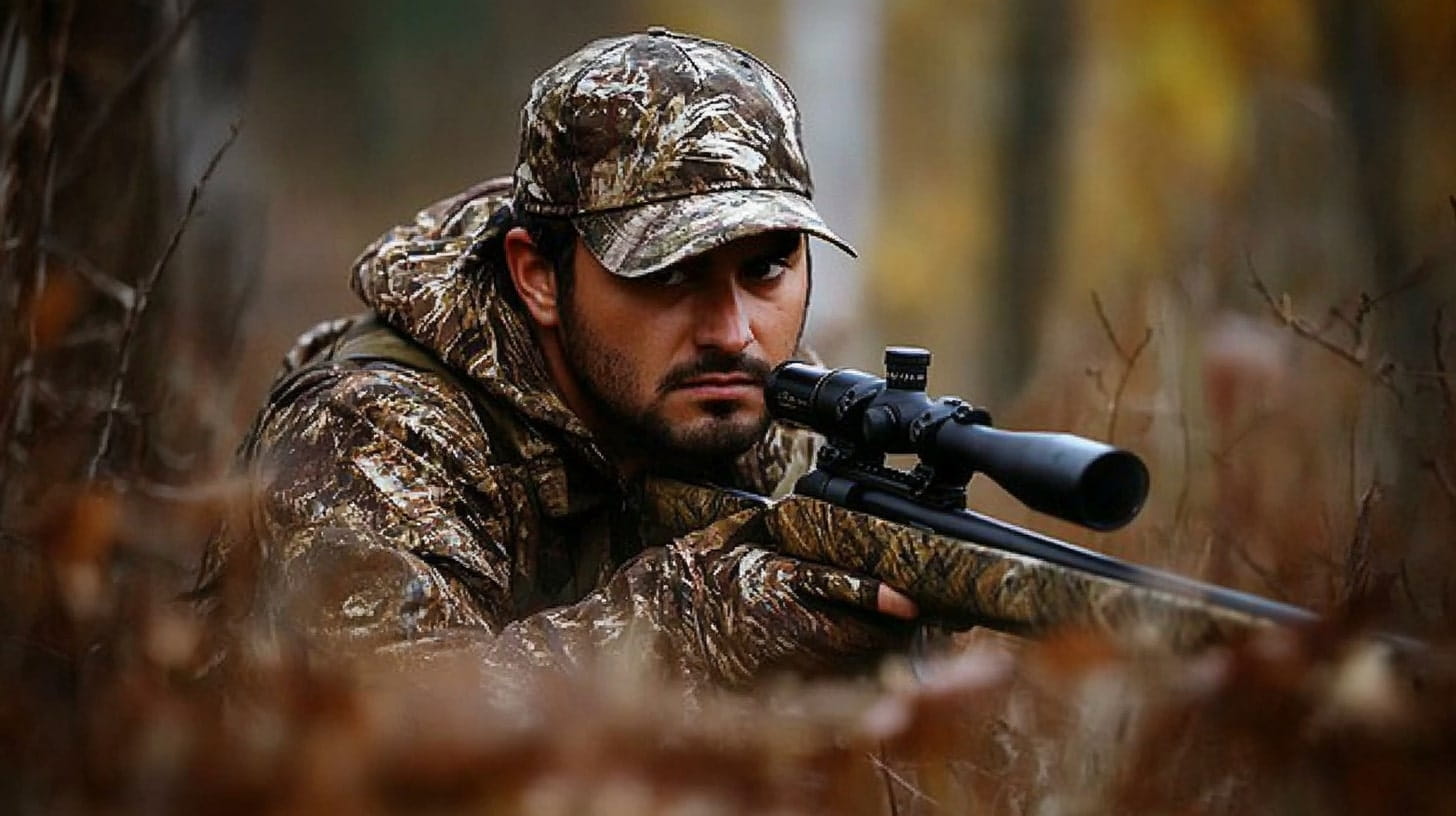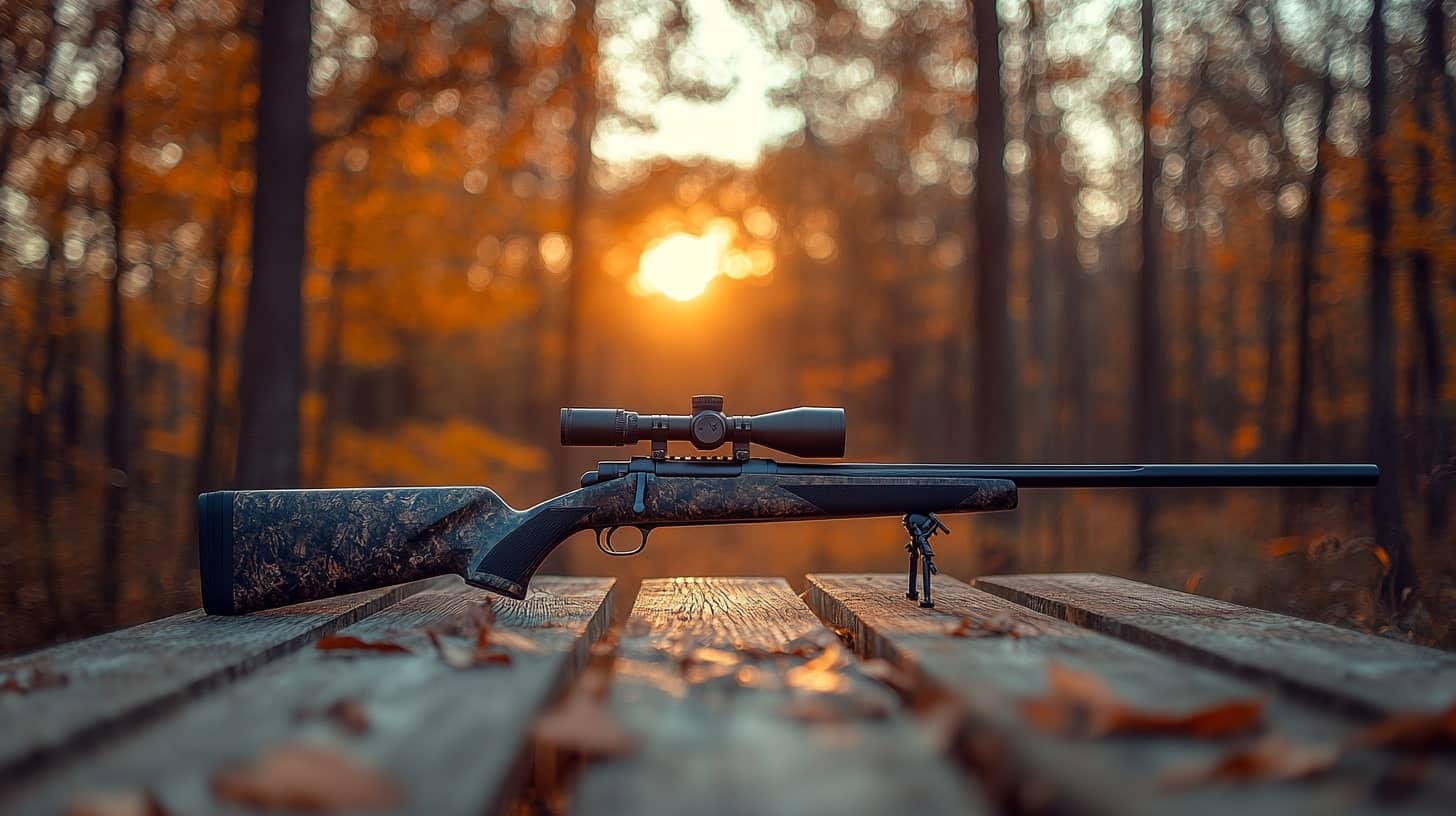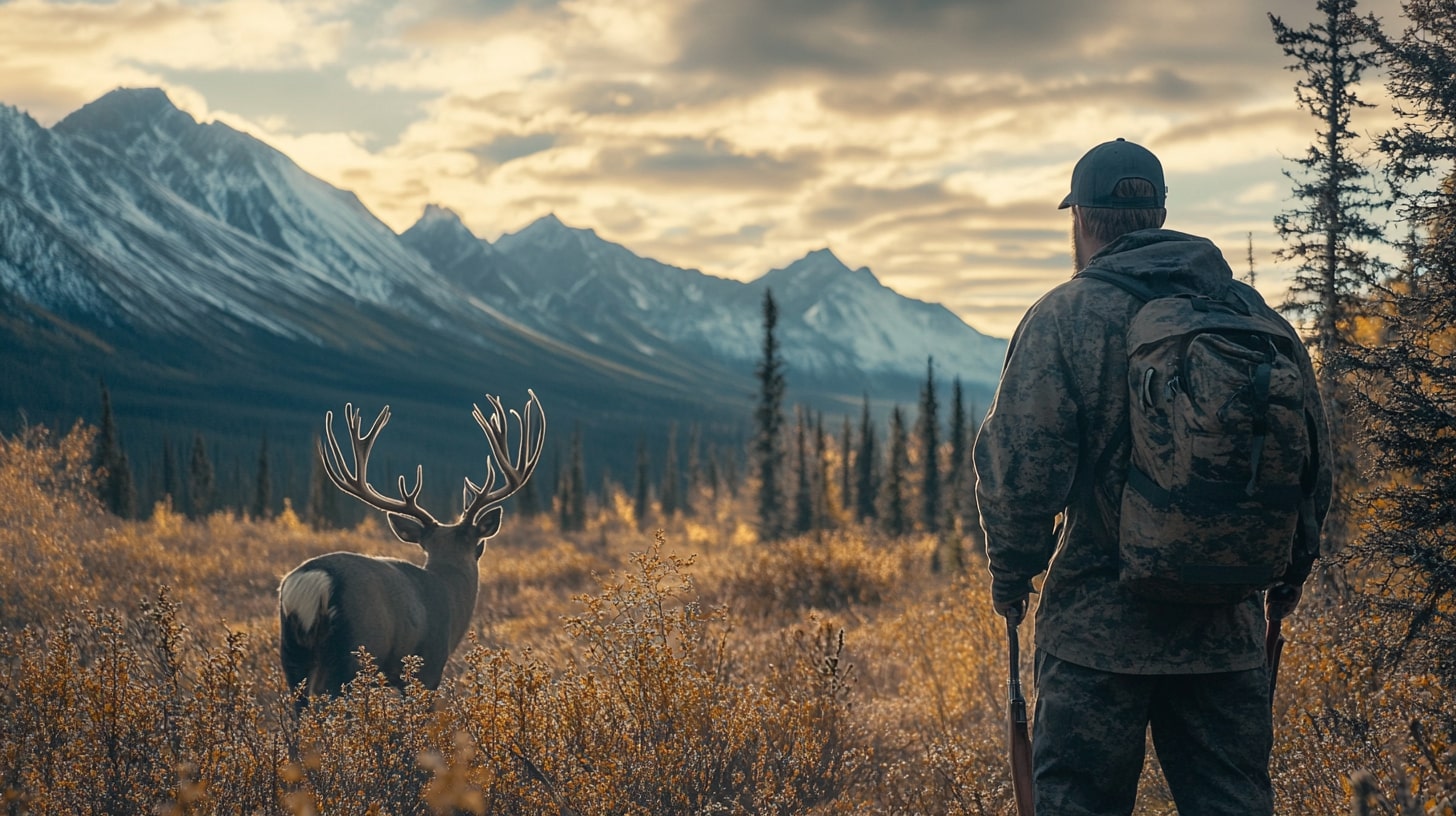The Art of the Hunt
For hunters and outdoor enthusiasts, the pursuit of a successful hunt is more than just a pastime—it’s a passion and a craft. The thrill of tracking, the satisfaction of a well-placed shot, and the connection with nature are what draw sportsmen to the field season after season. However, achieving consistent success requires more than just luck. Mastering essential hunting skills can transform a good hunter into a great one, leading to personal fulfillment and ethical hunts.
This blog post will explore five crucial hunting skills every sportsman should master. From stealth and camouflage to survival techniques, these skills not only enhance your hunting prowess but also deepen your connection to the natural world. We’ll also discuss the role of technology in modern hunting and the importance of ethical practices. By the end, you’ll be equipped with insights and tips to elevate your hunting game and engage in sustainable hunting.
Essential Hunting Skills
Stealth and Camouflage
The ability to move silently and blend seamlessly with your surroundings is fundamental for any hunter. Stealth and camouflage are about more than just wearing the right gear; they involve understanding the environment and minimizing disturbances. Imagine stalking a deer in a dense forest. Every twig snapped underfoot or misplaced rustle could alert your quarry. Mastering the art of silent movement requires practice and patience.
Effective camouflage goes beyond clothing patterns. It includes knowing how to use natural cover and shadows to your advantage. Hunters can learn a lot by observing animals like wolves or tigers, which rely on stealth to get close to their prey. By practicing these skills, you can approach your target without detection, increasing your chances of a successful hunt.
Understanding Animal Behavior
Knowing your prey is crucial to becoming a successful hunter. Animals have specific habits and routines, often dictated by factors such as food availability, weather, and mating seasons. Understanding these behaviors can help you predict where and when to find your quarry. For example, deer are most active during dawn and dusk, which are ideal times for hunting.
Honing this skill involves studying animal tracks, calls, and signs like rubs or scrapes. Additionally, spending time observing wildlife in their natural habitat can provide invaluable insights. By getting inside the mind of your target species, you can anticipate their movements and plan your strategy accordingly.
Navigation and Tracking
In the wilderness, knowing how to find your way is essential. Navigation skills ensure you can traverse rugged terrain confidently and return safely. Familiarize yourself with reading topographic maps, using a compass, and relying on natural landmarks. In addition to these traditional methods, GPS technology can be a valuable tool for precise navigation.
Tracking is equally important for locating animals. By interpreting tracks, scat, and other signs, you can follow an animal’s path and determine its recent activity. Successful tracking demands patience and attention to detail. With these skills, you can stay on the trail of your quarry and increase your success rate.
Marksmanship
A hunter is only as good as their aim. Marksmanship is the skill of accurately and consistently hitting your target. Whether you prefer firearms or archery, regular practice is key to improving your accuracy. Spend time on the range honing your grip, stance, and breathing techniques. Additionally, learning to adjust for distance, wind, and elevation can make all the difference in a real-world scenario.
Beyond technical proficiency, marksmanship emphasizes safety and ethical considerations. Always ensure you have a clear shot and know your target and what’s beyond it. A clean, humane kill is the goal of every responsible hunter, and mastery of marksmanship makes this possible.
Survival and First Aid
Even the most experienced hunters can find themselves in unexpected situations. Knowing basic survival skills and first aid can be lifesaving. Skills such as building a shelter, starting a fire, and sourcing clean water are crucial if you become stranded. Equally important is carrying a well-stocked first aid kit and knowing how to treat common injuries like cuts or sprains.
Preparation is key. Carry a reliable survival kit, and always inform someone of your hunting plans. By equipping yourself with these skills, you can ensure your safety and well-being in the great outdoors.
In-Depth Analysis of Each Skill
Let’s take a closer look at why each skill is crucial and how you can improve:
Stealth and Camouflage
Stealth allows hunters to get closer to their prey without being detected. Every step should be calculated and deliberate. Practice moving slowly and quietly, avoiding sudden movements. Use the wind to your advantage, approaching from downwind to mask your scent. Real-life success stories, like those of indigenous hunters, illustrate how mastery of stealth can lead to successful hunts.
Camouflage involves more than just wearing the right clothing. Understand the environment and mimic its colors and patterns. Incorporate natural elements like leaves or mud to break up your silhouette. With time, you’ll learn to become a part of the landscape, invisible to your prey.
Understanding Animal Behavior
Animals are creatures of habit. By learning their behaviors, you can anticipate their actions. For instance, during rutting season, deer are more active and less cautious. Use this knowledge to plan your approach. Employ trail cameras to monitor animal activity and identify patterns.
Engage with local hunting communities and resources to deepen your understanding. Share experiences and learn from others who have honed this skill over years of observation. The more you know about your prey, the better equipped you’ll be for a successful hunt.
Navigation and Tracking
Navigation is your lifeline in the wilderness. Invest time in learning how to read a compass and map. Practice triangulating your position using landmarks. Modern tools like handheld GPS units can complement traditional methods, providing accurate location data.
Tracking is an art form that requires patience and observation. Study animal tracks, droppings, and feeding signs. Learn to distinguish between fresh and old tracks. Successful trackers often demonstrate an almost intuitive sense of their surroundings, allowing them to follow elusive prey.
Marksmanship
Precision and consistency are the hallmarks of excellent marksmanship. Set up a regular practice routine at the range. Focus on fundamentals like grip, stance, and trigger control. Consider enrolling in marksmanship courses to refine your skills.
Simulated hunting scenarios can help you adapt to real-world conditions. Practice shooting from different positions and distances. Remember that ethical hunting relies on making clean, humane shots. Strive for proficiency to ensure respect for your quarry.
Survival and First Aid
Wilderness survival skills are essential for safety. Practice building emergency shelters using natural materials. Learn multiple methods for starting a fire, such as using a magnesium fire starter or flint and steel.
First aid knowledge is equally important. Take courses on wilderness first aid to understand how to treat injuries like fractures or hypothermia. Carry a comprehensive first aid kit, including items like bandages, antiseptics, and a tourniquet.
Tools and Technologies for Skill Enhancement
The Role of Technology in Modern Hunting
Technology has revolutionized hunting, offering new ways to enhance skills. GPS devices provide precise navigation, allowing hunters to mark locations and track game. Trail cameras offer valuable insights into animal behavior, revealing movement patterns and hotspots.
Optics such as rangefinders and scopes improve accuracy, helping hunters judge distances accurately and make informed shots. Drones are increasingly used to scout terrain and locate game, expanding the hunter’s perspective. However, balance is key. While technology can enhance skills, it’s vital not to lose sight of traditional methods that connect hunters with nature.
Evaluation of Tools and Gadgets
Not all gadgets are created equal. When considering technology, evaluate its practical benefits. Will it genuinely improve your hunting experience? Trail cameras, for instance, can save time by identifying active areas, but consider their impact on your overall strategy.
Electronic calls can mimic animal sounds with precision, attracting game to your location. While effective, ensure you’re aware of regulations governing their use in your area. Evaluate cost, reliability, and ease of use when selecting tools, and always prioritize those that align with your hunting style and goals.
Balancing Tradition and Innovation
While technology offers exciting advancements, traditional skills remain the foundation of successful hunting. Striking a balance between the two is crucial. Use technology to complement your abilities, not replace them. Remember that skills like tracking, stealth, and marksmanship are what truly set skilled hunters apart.
Engage in ongoing learning. Attend workshops, join hunting clubs, and participate in field activities to refine both traditional and modern skills. By blending old and new, you can become a more adaptable, effective, and ethical hunter.
The Importance of Ethical and Sustainable Hunting
Ethical Responsibilities of Hunters
Hunters bear a responsibility to respect the animals they pursue and the environments they inhabit. Ethical hunting involves fair chase principles, ensuring that animals have a reasonable chance of escape. Follow regulations regarding hunting seasons, bag limits, and legal methods.
Respect private property and obtain proper permissions before hunting on private land. Always leave the environment as you found it, minimizing your impact on ecosystems. Ethical hunters act as stewards of the land, preserving natural resources for future generations.
Promoting Sustainable Practices
Sustainable hunting means prioritizing conservation and biodiversity. Participate in habitat restoration projects and support organizations that work to protect wildlife populations. Engage in wildlife management efforts that ensure healthy populations and balanced ecosystems.
Choose hunting equipment and gear made from sustainable materials, reducing your ecological footprint. By aligning your practices with sustainability, you contribute to the long-term health of animal populations and their habitats.
How Mastery Contributes to Ethical Hunting
Skill mastery supports ethical hunting in several ways. Accurate marksmanship ensures clean kills, minimizing animal suffering. Understanding animal behavior allows hunters to make informed decisions, reducing unnecessary stress on wildlife.
Mastering survival skills enhances safety, reducing the risk of accidents that harm both hunters and the environment. By continuously striving for improvement, hunters set an example for others, fostering a culture of ethical and responsible hunting.
Conclusion
Mastering essential hunting skills is a lifelong pursuit that enhances the experience for hunters and benefits the natural world. From stealth and marksmanship to understanding animal behavior and navigation, these skills form the foundation of ethical and effective hunting.
By integrating traditional skills with modern technology and prioritizing ethical practices, hunters can contribute to conservation efforts and sustainable wildlife management. The pursuit of skill mastery not only leads to successful hunts but also fosters a deep appreciation for the natural world.
Whether you’re a seasoned hunter or new to the sport, there is always room for growth and learning. Explore new techniques, share experiences with fellow hunters, and continue to develop the skills that make you a responsible and successful sportsman. After all, the true spirit of hunting lies in the harmony between humans and nature.



